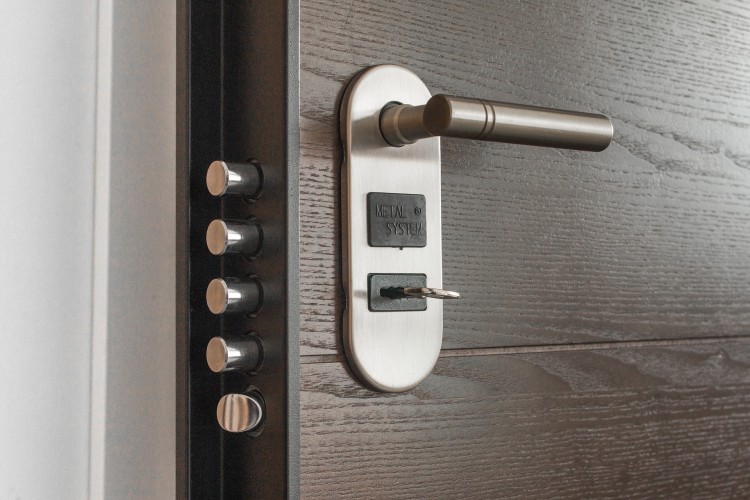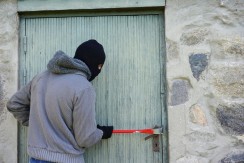The last thing you want when you’re planning a nice long break is to be stressed about the security of your home while you’re gone. We all know that with nobody in them, homes can fall prey to accidents, vandalism, or intruders, and we can spend time fretting about whether we did enough to secure our homes instead of enjoying a well-earned break.

If you’re leaving your home for an extended period of time – anything from a two-week holiday to spending several months abroad – follow these five steps to help you make sure you can sleep easy while you’re gone.
Step 1: Check your insurance.
Make sure that your building and contents insurance is up to date, and won’t expire while you’re gone. You also need to check that it still applies in the event of extended absence, and should notify your insurer of the dates that you leave and expect to return. There may be additional conditions you need to meet for your policy to continue to protect your home, so check this early and make sure you put these in place.
Step 2: Don’t let the building appear unsupervised.
Trim your lawns and hedges before you leave, and if you’re going to be gone for a significant length of time, arrange for someone to occasionally drop by and maintain the visible garden areas. Ask them to look out for signs of damage or disturbance, and respond to reports immediately.
While someone is visiting, encourage them to use the driveway – and offer it to your neighbours, too – to give anybody who may be scoping the building the impression that it is being checked on frequently.

Arrange for the Post Office to redirect your mail, or sign up to their Keepsafe service, which will hold your letters for up to 66 days while you’re away. Ask a local friend or neighbour to remove any freepost that comes through your door, as a visible build-up of letters will make it obvious you aren’t home – and remember to cancel regular deliveries like newspapers or milk!
Finally, use a timer plug on lamps (and possibly the TV) in your living room and bedroom to switch them on and off the evening, to make it look like someone is moving through the rooms. Some people prefer to leave their curtains fully closed, but partially closing them may be more convincing during the day time.
Step 3: Take reasonable precautions to prevent damage.
· Switch off all non-essential services like water, internet etc. Do not switch off your electricity if your security system relies on it!
· Make sure all access points are secure by installing robust garden gate locks and upgrading to more secure fittings on your house.
· Lock – and double-check – all your windows and external doors for both security and insurance purposes. Don’t forget about doors that open into a garage, or pet doors.
· Keep valuable items out of sight.
· Make sure all tools and loose items are stored inside a secure garage or shed. Bulky outdoor objects like bins, ladders or tools can easily be used to aid a break in.
· Ensure the perimeter of your property is in good condition; fences should be in reasonable repair and there should be no obvious gaps in hedgerows.

Step 4: Set up security measures.
Intruder alarms are an excellent way to protect your home, particularly if you’re going away. A sound-only alarm should be sufficient in most urban and suburban environments, and you should leave an access key with a close neighbour (make sure they know how to keep themselves safe in the event of it being triggered).
If your home is a potentially high risk, you may want to consider an alarm that connects to a fast-response service. These will require a unique reference number from your local police.
Depending on how long you are going away for, you may want to consider signing up for a house-sitting or guardianship scheme – particularly if your home is somewhat isolated. Homes with an occupant are less likely to be targeted by squatters, and will be able to immediately raise the alarm in the event of trouble.
Step 5: Ensure your house isn’t a liability.
Even if you’re not home, if a member of the public is injured due to your negligence you will still be liable.
· Repair any loose roof tiles.
· Clear any rubble or broken brickwork.
· Remove any sharp items like protruding nails or hooks.
· Make it difficult for trespassers to access the roof or high walls.
Before you start panicking about all the things you need to do to keep your home safe while you’re gone, take a moment to consider the area you live in, and decide which threats are the most likely. For example, if you’re at the top of a high-rise block, the position of your curtains won’t matter too much. Likewise, those living in a friendly, suburban community can benefit from a neighbourhood watch scheme.
The whole idea is that you don’t worry about your home unnecessarily, and you’ll never be able to plan for everything. Instead, do what you can and then focus on enjoying your break.
Are you looking to buy property in UK ? Hurghada , Scotland , Istanbul , Sahl Hasheesh , Dubai
Are you looking to rent property in UK ? London , Manchester , Reading , Leeds , Cardiff











Author
Dakota Murphey
Dakota Murphey is an independent writer specialising in property law.